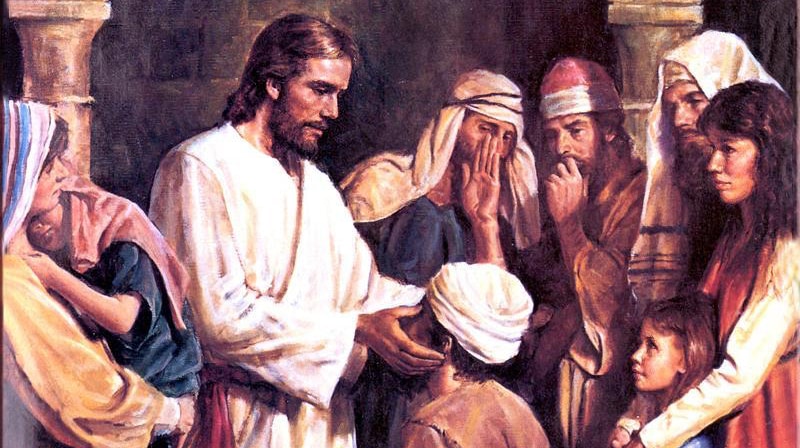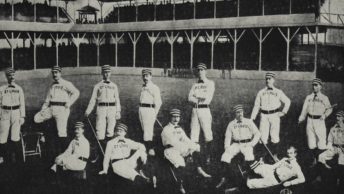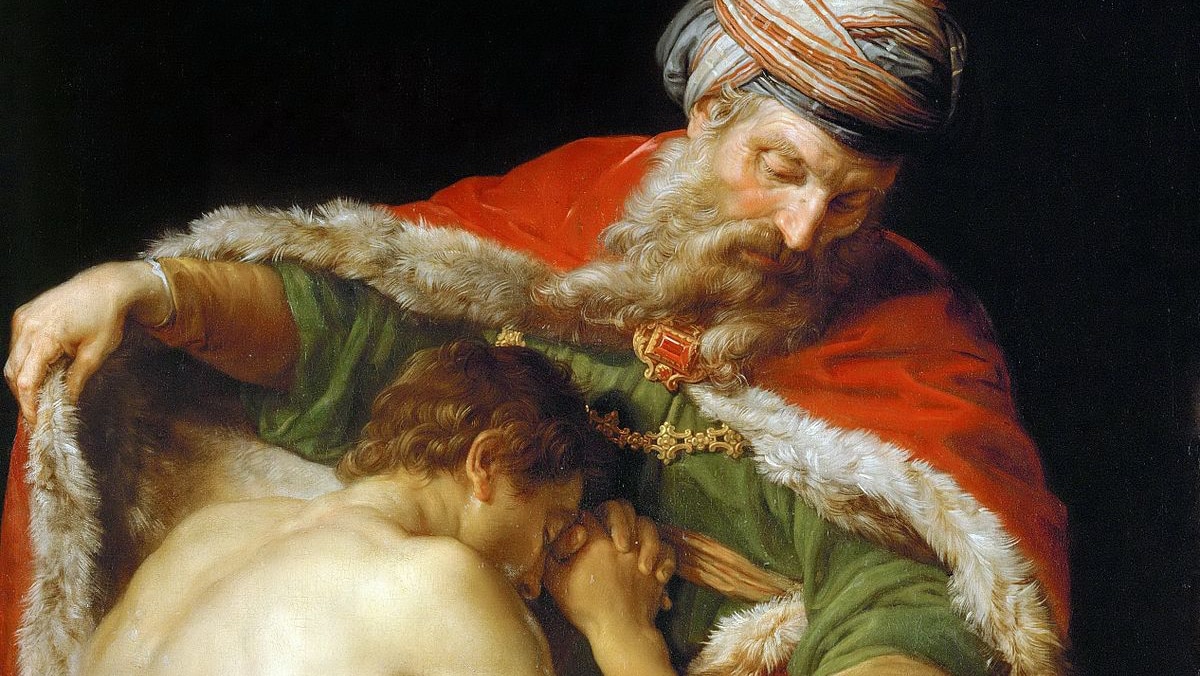“The Lord God opens my ear that I may hear; and I have not rebelled, have not turned back.”
Sound familiar? It should. It is the beginning of the first reading of the Church’s Good Friday service. It is Isaiah’s prophecy about the destiny of God’s Anointed, a.k.a. Messiah or the Christ. Of course, it refers to Jesus Christ, the Messiah, the Anointed of God as the Father reveals His plan to Him. Speaking of which, look how the pieces of Jesus’ life fit together nicely.
And Jesus advanced in wisdom and age and grace before God and man. (Luke 2:52)
This simple statement indicates how Jesus’ divinity never interfered with his human, natural growth. Dealing specifically with wisdom, we have to realize that Jesus, too, grew in it; there was a constant increase in the knowledge of what He discovered about Himself, His mission and the Father’s will. From hindsight we might be able to say that, during those thirty years of His life spent at Nazareth, such revelation must have unfolded smoothly, naturally, evenly. However, revelation of the Father’s will must have become troubling, disconcerting, puzzling during His public ministry leading up to His death on the cross. At the outset, Jesus realized that He had received a special anointing, (cf. Luke 4:16-21) that He was the Messiah, the Christ of God and that anointing was for a specific purpose: for our salvation (in a nutshell).
“The Spirit of the Lord is upon me, because he has anointed me to bring glad tidings to the poor. He has sent me to proclaim liberty to captives and recovery of sight to the blind, to let the oppressed go free.” (Luke 4:18)
However, Jesus soon found out that the forces of evil were not going to accept their inevitable defeat sitting down. As opposition mounted, Jesus became conscious that part and parcel of that anointing would be personal, intense suffering and a constant form of conflict, just as Isaiah’s prophecy had foretold. (Is 50:5-9)
Perhaps, then, what happened at Caesarea Philippi was a moment of collective enlightenment. The Father included Peter and the other disciples in His progressive revelation of His plan of salvation, although with contrasting reactions.
Jesus was indeed God’s anointed and that anointment was inseparable from great suffering, rejection at the hand of the elders, the chief priests and the scribes; and it was also inseparable from a horrific death.
However, the last, most important part of the prophecy from Isaiah, was clear only to Jesus, while from His disciples, the “rise after three days” must have been blocked out by the veil of their imperfect, yet sincere love for Jesus mixed with their intense desire that He should be spared any pain.
They could not yet find any reassurance in His rising after three days prediction because their emotional closeness to their Master was making them wonder if a similar destiny of intense suffering and death awaited them.
Now, lest we have gathered in our church solely for an edifying recollection of events that happened 2000 years ago, we must ask ourselves an existential question: Why is the Church making us relive firsthand this troubling page of the Gospel? Let me submit to you that it must be because we, too, are expected to grow in wisdom and age and grace before God and man.
Within the boundaries of the official Revelation from God the Father, those who are truly in love with Jesus, who are attentive and tuned-in to His wavelength, discover a personal, unofficial, intimate revelation exclusively for their individual use, enlightenment and comfort.
Hopefully, as we grow in age, we grow also in our understanding of a deeper, fuller reality, the reality of God’s love for us, of the share of His plan for each one of us and of how to handle the inevitable periods of suffering in life, all in view of our rising with Christ on the third day.
Undoubtedly, the most crucial aspect of our growth, today, should be the removal of the veil that we have placed over the “rise after three days.” As we face the trials of life, even very serious, threatening situations that have the power to push us to the brink of despair, of thick darkness and total loss, we must renew our belief that our resurrection, our being sealed in God’s love and our share of endless glory are a done deal from God’s perspective.
And we are to believe that God cannot, God will not change His mind. It is so because He is God and, as such, He is incapable of changes.
“And, why,” you might ask, “is God incapable of changes?” Because only limited, imperfect beings change. Change involves an improvement or a worsening of a condition. In both cases it indicates imperfection. Thus, since God is infinite perfection, He doesn’t change. His love for us is unfailing, so is our future of glory in Him. However, from our perspective, as we are within time and space, things are still quite different and, oftentimes, very scary.
We have a hard time denying ourselves due to our innate pride and the instinct of self-preservation. We are ready to drop our cross at every turn and we follow Jesus halfheartedly, at best. Perhaps what can help us in our surrender, in our trust-filled abandonment into His hands, might be the recollection of our anointing at Baptism and Confirmation.
We, too, are parts of the total Son of Man; we, too, are one with the Messiah; and we, too, are inseparable from God’s Anointed. May this Holy Communion with Him remove the veil completely so that we may find comfort and guidance in all that the Father wishes to reveal to us as we are sustained by firm hope in our rising from the dead.








